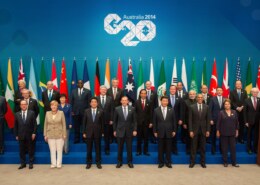Roadmap for Answer Writing Introduction Definition of Globalization: Explain globalization as the growing interdependence and integration of economies, societies, and cultures. Thesis Statement: Introduce the focus on the effects of globalization specifically on women in India, highlighting both positive and negative impacts. Body Positive Effects ...
Past Contributions Suffrage Movements: Early 20th-century movements fought for women’s right to vote, leading to significant political empowerment. Civil Rights Movements: Grassroots activism during the 1960s addressed racial and gender inequalities, promoting equal rights for women. Women’s LiberatRead more
Past Contributions
Suffrage Movements:
Early 20th-century movements fought for women’s right to vote, leading to significant political empowerment.
Civil Rights Movements:
Grassroots activism during the 1960s addressed racial and gender inequalities, promoting equal rights for women.
Women’s Liberation Movement:
The 1970s saw a surge in activism for reproductive rights, workplace equality, and anti-discrimination laws.
Present-Day Contributions
#MeToo Movement:
Raised global awareness about sexual harassment and assault, leading to policy changes and greater accountability.
Economic Empowerment Initiatives:
Grassroots organizations provide microloans and vocational training to women, fostering financial independence.
Education and Advocacy:
Local groups work to improve access to education for girls and advocate against child marriage and gender-based violence.
Health and Well-being:
Grassroots efforts focus on women’s health, including maternal care and mental health support.
See less

Model Answer Introduction Globalization refers to the growing interdependence and integration of economies, societies, and cultures worldwide, driven by cross-border trade, investment, and the movement of people. This phenomenon has significantly impacted various aspects of life in India, particularRead more
Model Answer
Introduction
Globalization refers to the growing interdependence and integration of economies, societies, and cultures worldwide, driven by cross-border trade, investment, and the movement of people. This phenomenon has significantly impacted various aspects of life in India, particularly for women.
Positive Effects of Globalization on Women
1. Change in Value Systems
Globalization has contributed to a shift in societal attitudes, challenging traditional patriarchal norms. More women are now participating in decision-making processes within families and communities, leading to greater independence.
2. Increased Opportunities
The globalization of markets has provided women with opportunities beyond traditional roles in homemaking and agriculture. Women are increasingly engaging in productive labor outside the home, enhancing their standard of living and boosting confidence.
3. Rising Access to Education and Skills
Numerous NGOs have emerged to provide literacy and vocational training to women, empowering them with skills necessary for economic participation. This education enables women to improve their lives and contribute to the economy.
4. Enhanced Political Participation
Globalization has facilitated greater political engagement among women, allowing them to advocate for their rights and issues directly. Increased representation in political spaces enables women to influence policy decisions.
Negative Effects of Globalization on Women
1. Dual Burden
Many working women face the challenge of balancing traditional household responsibilities with their roles in the globalized workforce. This dual burden can lead to stress and burnout.
2. Gender Wage Disparity
Despite increased opportunities, women still experience significant wage gaps compared to their male counterparts for similar work. This disparity underscores the persistent inequality in the labor market.
3. Feminization of Labor
Globalization often relegates women to “pink-collar” jobs, such as teaching and nursing, while limiting their access to diverse career options. This phenomenon reinforces gender stereotypes and restricts women’s professional growth.
4. Decline in Traditional Values
As women engage more in the workforce, traditional family roles are challenged, leading to a perceived decline in cultural values. This shift can create tensions within families and communities.
Conclusion
In conclusion, globalization presents both opportunities and challenges for women in India. While it has opened doors for greater independence and participation, it also exacerbates existing inequalities and introduces new pressures. With continued efforts to leverage globalization for women’s empowerment, there is significant potential for positive change.
See less